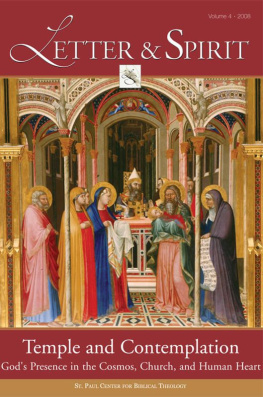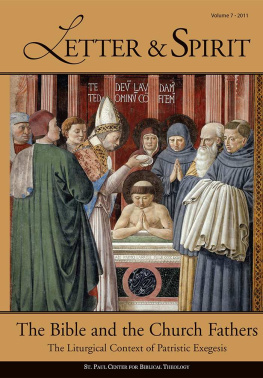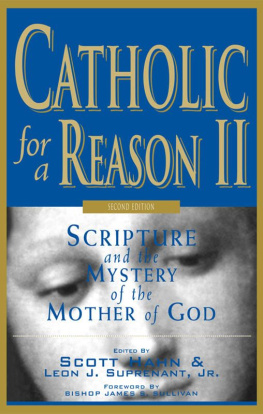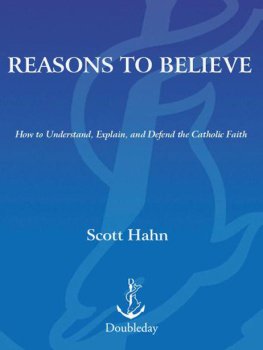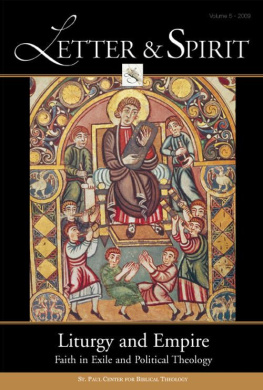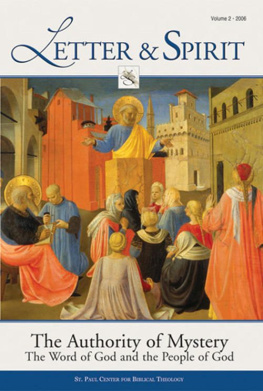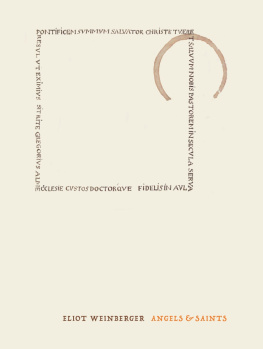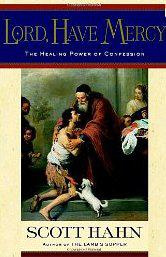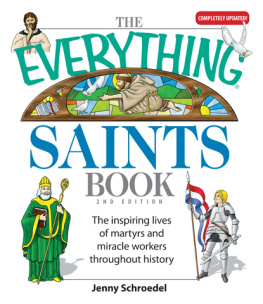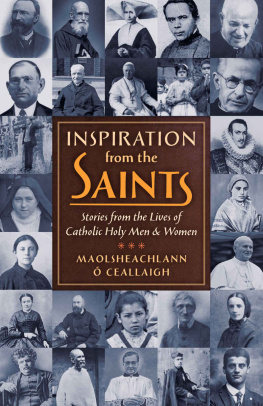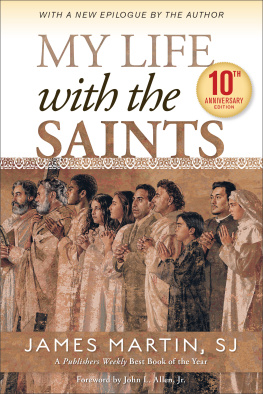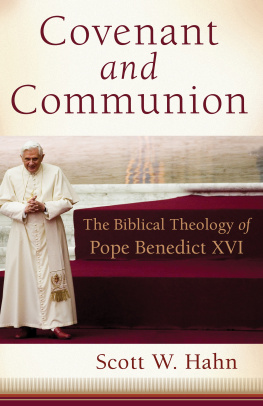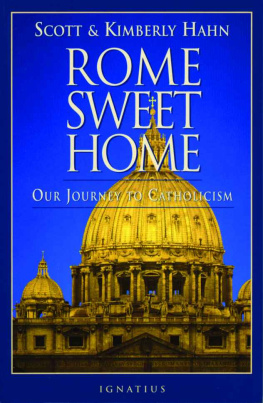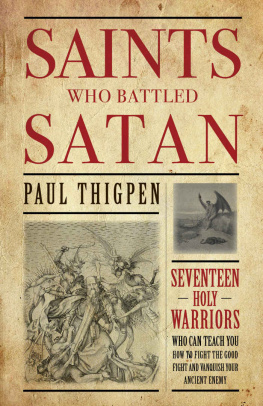1
Incident in Assisi: The Science of the Saints
A ssisi represents a kind of Hollywood ideal of heaven on earth. The towns buildingsits hotels and shops and restaurantsare medieval or at least look the part. Look in any direction, and the green, rolling hills look like landscapes from the old masters. Youll find few cars on the cobblestone streets, but at any moment you could find yourself in a throng of brown-robed pedestrians.
Its the town of St. Francis, the town of St. Clare, and its inhabitants are proud of the fact. They strive to keep it credibly Franciscan for the hundreds of thousands of pilgrims and tourists who visit each year. Its also the town of lesser-known saints such as Agnes of Assisi (Clares little sister) and Gabriel of the Sorrowful Virgin, the ancient St. Rufinus and the Benedictine hermit St. Vitalis.
And it is the town of myriad angels. The centuries-old fortification is called the Rocca San Angelo Holy Angel Fortress. The gem of Assisis many churches is the Basilica of St. Mary of the Angels, which houses St. Franciss own Portiuncula (Little Portion) chapel.
So many angels and saints, but so little time. We had made quick trips to Assisimy wife, Kimberly, and Ibut we wanted to walk its streets again, to make a pilgrimage more intentional and familiar. We advertised a tour and were to play host to more than a hundred fellow pilgrims from the United States.
We were eager, then, to believe the doctor when he told us that our seven-year-old, Joe, would be well enough to make the tripeven though our flight left just two weeks after his emergency appendectomy. Joe was mending, the doctor said, in an exemplary fashion, and there was no sign of infection or complications.
Joe, for his part, didnt feel he needed a doctor to pronounce him ready. Irrepressible, athletic, and gifted with the strongest constitution in the family, he was always up for an adventure. And Assisi, with its maze of hills and alleyways, forts and castles, promised him episodes straight out of storybooks and Butlers Lives of the Saints .
In Assisi Joeand wegot more of an adventure than he dreamed, but a different sort of adventure.
The doctors healthy prognosis was confirmed by Joes movement on the flight to Rome, and then on the bus through the mountains to Assisi. My sons voyage had begun, and he was the explorer, the crusader, the true pilgrim. His worried parents, of course, were on the alert for any sign of strain, and occasionally we made the obligatory but pointless admonition for the seven-year-old to relax and get some rest.
Our first day was partial and included only a few of the sites associated with the lives of the local saints. Still, it was enough to earn the whole familyand even Joea good nights sleep when we hit the pillows back at the hotel.
The itinerary for our second day was full, and we set out early. But this day was definitely different. Within the first hour, I noticed that Joe was wincing and stopping. By the second hour, he was stopping to double over. At first, when I asked, he protested that everything was okay, and he denied having any pain more than a walking cramp. But soon it became apparent that he couldnt go on. Kimberly actually removed our toddler, David, from our stroller, and set Joe in Davids place.
It was clear, though, that this wouldnt be enough, and we asked our tour guide to summon us a taxi so we could visit a doctor. Kimberly and I divided the duties: she would stay behind in the old town with the other children; I would accompany Joe to the hospital.
Know Pain, Know Gain
The taxi delivered Joe and me to an unassuming and unimpressive building: Ospedale di Assisi. It wasnt what I had hoped to see. It wasnt what I would expect to see at a comparable tourist destination in the United States. The outside appearance didnt leave me with a strong sense of confidence. What everyone loves about Assisiits long lingering in the Middle Ageswas not what I wanted to find in its practice of medicine.
My worries were relieved, slightly, by the kind expressions of the people inside. Yet their greetings only added a new cause for concern, as it became clear that we shared few words in common beyond our simple greetings. They said their halting hellos and we our pathetically accented buon giornos ; and then, with gestures and pidgin phrases, we set about trying to communicate about Joes medical history and current symptoms.
My anxiety levels climbed higher, higher than the Rocca San Angelo that overlooked the town. Joe was, by this time, writhing in my arms as he sat awkwardly in my lap.
The people from reception ushered us back to the x-ray room, where the technician was also just arriving. Quite obviously one of the towns firemen, he arrived still wearing uniform overcoat and galoshes. He did his work as quickly as possible on equipment that looked, to my untrained eye, at least a couple of decades old.
We then continued our pilgrim way to an examining room, to await the dottore . It was a mercifully brief wait till we met the doctor. And, as if in answer to my urgent prayers, he spoke adequate English.
He looked at the chart as I explained the situationJoes appendectomy, his exemplary recovery, and then our crisis. He nodded, then gently touched a couple spots on Joes abdomen before Joe cried out from the pain.
The doctor led me into the hallway and said the words I wanted to hear: I think your son will be fine. With his limited English, he explained that the pain was now in a safe place. But if it should shift to the other side, Joe would need immediate surgery. And that would be a serious problem, not only because wed have to operate, but because wed have to operate here . His tone seemed to indicate that here was not the best location for surgery.
We checked into the hospital for an overnight stay. Joe, who was ordinarily voracious, had no appetite for food. A boy who rarely complained, he was now reduced to moaning and crying into his pillow.
I tried to keep him amused, making small talk, and he tried now and then to focus on a handheld video game, but the pain consumed his attention and wrung my paternal heart. Around ten p.m. I asked him, Wheres the pain now? Is it still in the same place? And he said, No, its on the other side. I asked him if he was sure about that, and he said he was.
Joe had not heard my conversation with the doctor, so he didnt know the import of his words. I excused myself and hurried down to the nurses station, where I asked a nurse to contact the doctor. I took up a piece of paper and wrote the words, Pain on other side. Danger.
I returned to the room and waited for the doctor. Joe was writhing in agony. I tried to calm him, and gradually his moans subsided into a whimper as he fell in and out of an exhausted sleep. Not knowing when help might arrive, I turned off the lights in the room and did the only thing left for me to do.
I dropped to my knees in the most desperate prayer, imploring Gods help in the most general and inarticulate way.
And I was startled by a sudden sense of presencea vivid sense.
God was with me in that room. If you had turned on the lights and I had seen him, I wouldnt have been surprised. God was close to me in my helplessness. I had the clear sense that he was asking me: What are you afraid of?
I was taken aback, and I responded frankly, though interiorly: Why would you even ask that? You know what Im afraid of. Im afraid of losing my son in surgery in a place thats not prepared to deal with this sort of problem. I love him, and I dont want him to die.
And just as clearly I sensed Gods reply: Is that all?
I couldnt have imagined this. I couldnt have made this up. It seemed to me that the all-knowing, all-seeing, all-compassionate God was belittling my concerns. But as long as he was asking, Id answer with both barrels: Well, no, thats not all. Im also afraid what will happen to my wife, his mother. It would shatter her.


